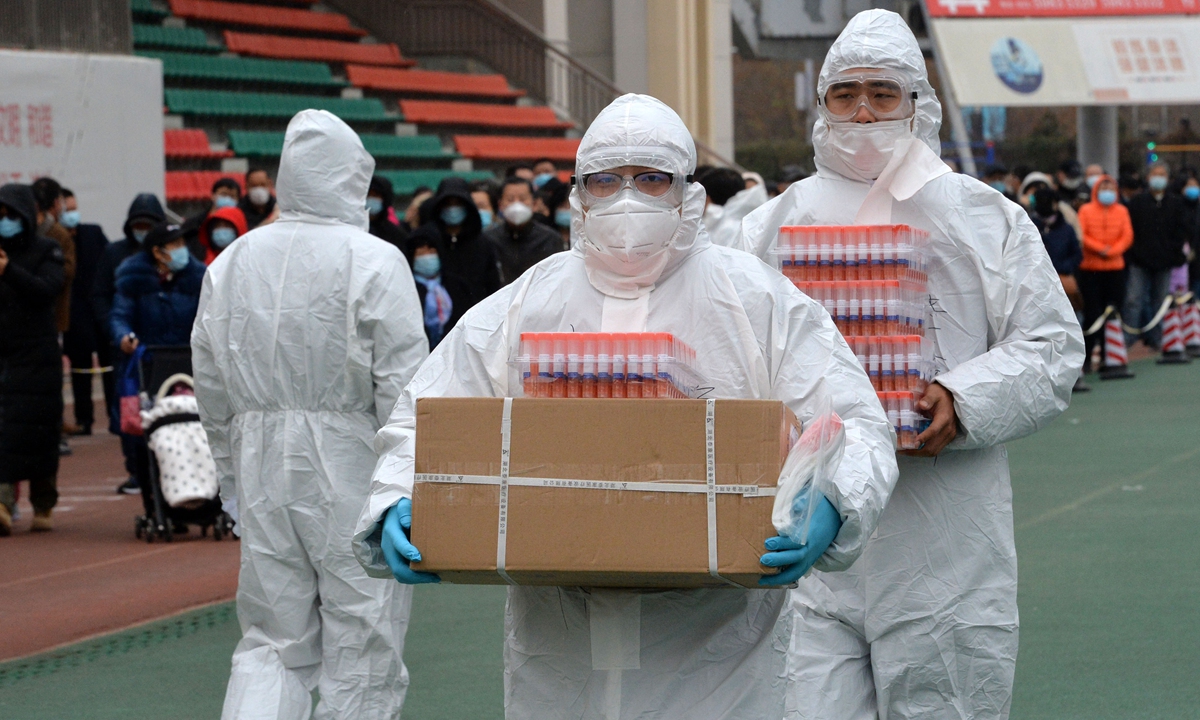Tianjin's thorough investigation found pig heads from North America infected pork knuckles from Germany, causing infections
Source: Global Times Published: 2020/11/24 20:13:40 Last Updated: 2020/11/25 1:34:29

Medical staff in Tianjin carry test tubes at a temporary test site in Tianjin. Photo: People's Daily
The recent COVID-19 infections in North China's Tianjin Municipality have two sources, with one related to frozen pig heads imported from North America, Zhang Ying, a deputy director of Tianjin diseases control and prevention center, told a press conference on Tuesday.
Zhang noted that they received reports from Dezhou of Shandong that a batch of pork knuckles imported from Germany via a port in Tianjin was coronavirus-positive. Tianjin then screened Hailian cold storage and found two confirmed cases.
According to thorough epidemiological investigations on the two cases, Tianjin found the source of the two infections could be traced to two batches of pig heads imported from North America, which were carried in and out by the same worker while wearing the same pair of gloves and clothes. The original source is likely the pig heads which then infected the pig knuckles, according to Zhang.
On November 20, four residents in the Kanhaixuan residential community in the city's Dongjianggang district reported to be confirmed cases of COVID-19. On November 9, a confirmed case working in a Hailian cold storage in Beinhai New Area had been reported.
There are no links between the two infections, but share similarities - all infections happened in the Binhai New Area, and all the sources are imported cold chain products. People working in the field were first exposed to the virus, Zhang told the press conference.
The differences lie in the virus strain via virus sequencing and transmission patterns - one virus strain is the L genotype of the European branch I and the other is from North America.
The source of the Hailian cold storage is frozen pig heads imported from North America. Zhang explained how two working staff who had contacts with the pig heads were infected.
Based on closed-circuit videos in buildings of the Kanhai residential community, confirmed cases entered elevators coughing and wearing no masks, which may have spread the virus, according to Zhang.
On Tuesday, Tianjin lowered the risk level of a street in Binhai New Area and two districts of a logistics center in Zhongxinyugang. The Binhai New Area completed nucleic acid tests on more than 2.46 million of people, and all came back negative.
Posted in: SOCIETY